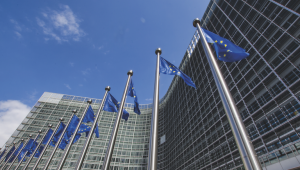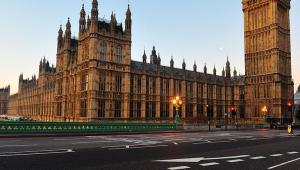In a document published today, minsters set out 12 priorities for the negotiations to leave, which will begin once prime minister Theresa May formally triggers the Article 50 exit process by the end of next month.
The 12 principles include taking control of UK laws, controlling immigration and ensuring free trade with European markets as well as securing new trade agreements with other countries.
In his preface to the document, Brexit secretary David Davis said the result of June’s referendum was not a move to turn the UK’s back on Europe.
“Rather, it was a vote of confidence in the UK’s ability to succeed in the world – an expression of optimism that our best days are still to come,” he said.
“This document sets out our plan for the strong new partnership we want to build with the EU. Whatever the outcome of our negotiations, we will seek a more open, outward-looking, confident and fairer UK, which works for all.
On the EU budget contribution, the paper said that the UK was likely to want to continue to make payments to the bloc to continue cooperation in some areas. The subject of these payments was a hot topic in the referendum campaign, with the leave campaign pledging to use the £350m in gross contributions saved from leaving the EU each week to boost the NHS. However, this has not subsequently been confirmed by ministers.
The white paper stated: “Once we have left the EU, decisions on how taxpayers’ money will be spent will be made in the UK. As we will no longer be members of the single market, we will not be required to make vast contributions to the EU budget. “There may be European programmes in which we might want to participate. If so, it is reasonable that we should make an appropriate contribution. But this will be a decision for the UK as we negotiate the new arrangements.
The paper also stated that the government recognised the need to provide business, the public sector and the public with as much certainty as possible.
“So ahead of, and throughout the negotiations, we will provide certainty wherever we can. We will provide as much information as we can without undermining the national interest,” it stated.
Responding to the paper, CIPFA chief executive Rob Whiteman said the high level information in the document now needed to be translated into proposals that are analysed, modelled and delivered.
“Sadly the UK will not achieve everything it desires, and so the government needs capacity to understand the trade-offs in terms of their societal and fiscal impacts,” he added.
"For public services reliant on EU workers, the most pressing issue is to understand the likely end point and develop plans to achieve service continuity."




















